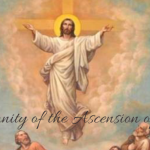For a link to buy Ghost Brother Angel, or to join in the discussion about it, go here.
 Don’t read Ghost Brother Angel if you’re looking for a spine-tingling tale of the supernatural that will keep you up at night. You can read this book just before bed and miss not a wink.
Don’t read Ghost Brother Angel if you’re looking for a spine-tingling tale of the supernatural that will keep you up at night. You can read this book just before bed and miss not a wink.
Ghost Brother Angel was written by Grant Schnarr, a Pastor in the Swedenborg tradition of Christianity. It has all the narrative points of a riveting tale. But it is boring. I had trouble making myself finish it. I think the reason why is that the subject matter is too close to the author.
The underlying story is a simple tale of a family so wracked by grief over the death of their first child that they snap the lid shut on their emotions and refuse to talk about him or what happened. This silence locks everyone involved in their separate trauma rooms for decades.
That’s dramatic stuff, but in this book it’s tepid. I think the problem with the writing is that the child that died was Grant Schnarr’s older brother. He himself spent much of his life living with the silent trauma of his grief-stricken parents. He alludes to the fact that his father was an alcoholic, which was certainly another traumatic thing he had to deal with as a child. As a young adult, Schnarr evidently fell into alcoholism himself. Some stories cut too close to the bone to tell.
The book gives the impression that nobody in this family talked about any of this before Pastor Schnarr forced the issue decades later. What led him to do this was a personal breaking point precipitated by two back-to-back brushes with death.
The first brush with death was a near-crash of a transcontinental airliner Schnarr and his wife were on. They were beginning a flight from America to South Africa when the hydraulic system on the plane began to fail. After a terrifying flight back to the airport and a bumpy landing, they had to spend the night in a hotel then get up the next day and get back on the same plane and fly across the ocean to Africa.
Schnarr relates all this in a detail-laden narrative that, despite the powerful events he is describing, keeps the reader away from the action. What’s left is a sort of I-see-the-words-but-I don’t-feel-the-pain kind of reading experience.
After the couple arrives in South Africa, they learn that one of their sons has been hit by a bus. He has a concussion and scrapes and bruises, but is not seriously injured. Schnarr’s wife goes home to the child while he continues his work in Africa. I’ll stop here to say that this is something I don’t understand. Who would not go back to their child under circumstances like these? The action of staying on in Africa seemed as distant as the narrative itself.
Schnarr relates all this in the same lackadaisical way he does everything else. The whole book is about his thoughts and feelings. The drama of even the most dramatic events gets filtered through his almost clinical fixation on his own reactions. What we read is not what happened, but what he thought about what happened, how he reacted to what happened, and then, his ruminations about his thoughts and reactions.
The main storyline isn’t focused on ghosts or dead brothers or even a family in need of healing. It’s a numbing recitation of Grant Schnarr’s every little thought and reaction to every little thing. The book is the narrative of the author, taking his own emotional pulse and then reporting his findings to everyone around him, 24/7. After a while, the reading gets about as interesting as watching a cow chew her cud.
By the end of the book, Schnarr has wandered through the woods of endless mystical explanations of everyday experiences and self-absorbed self-examination to come to the conclusion that his brother is not dead, but probably his guardian angel. He also realizes that the family needs to take the memory of this lost child out of the closet and talk about him.
I think Ghost Brother Angel needed an editor. I’m not talking about a grammar-checking copy editor. I mean a red-pencil-wielding editor with the ability to cut the story loose from the dead weight. The story in Ghost Brother Angel is hidden behind useless detail and long-winded descriptions of things that do nothing to move the book along. This book needed an editor to hand the manuscript back to the author and say “Write the story.”
Ghost Brother Angel could have been a fine book. The subject matter is compelling for all of us mortals and the events have enough drama to hold anyone’s attention. But at least for me, what it is instead is one boring read.
















